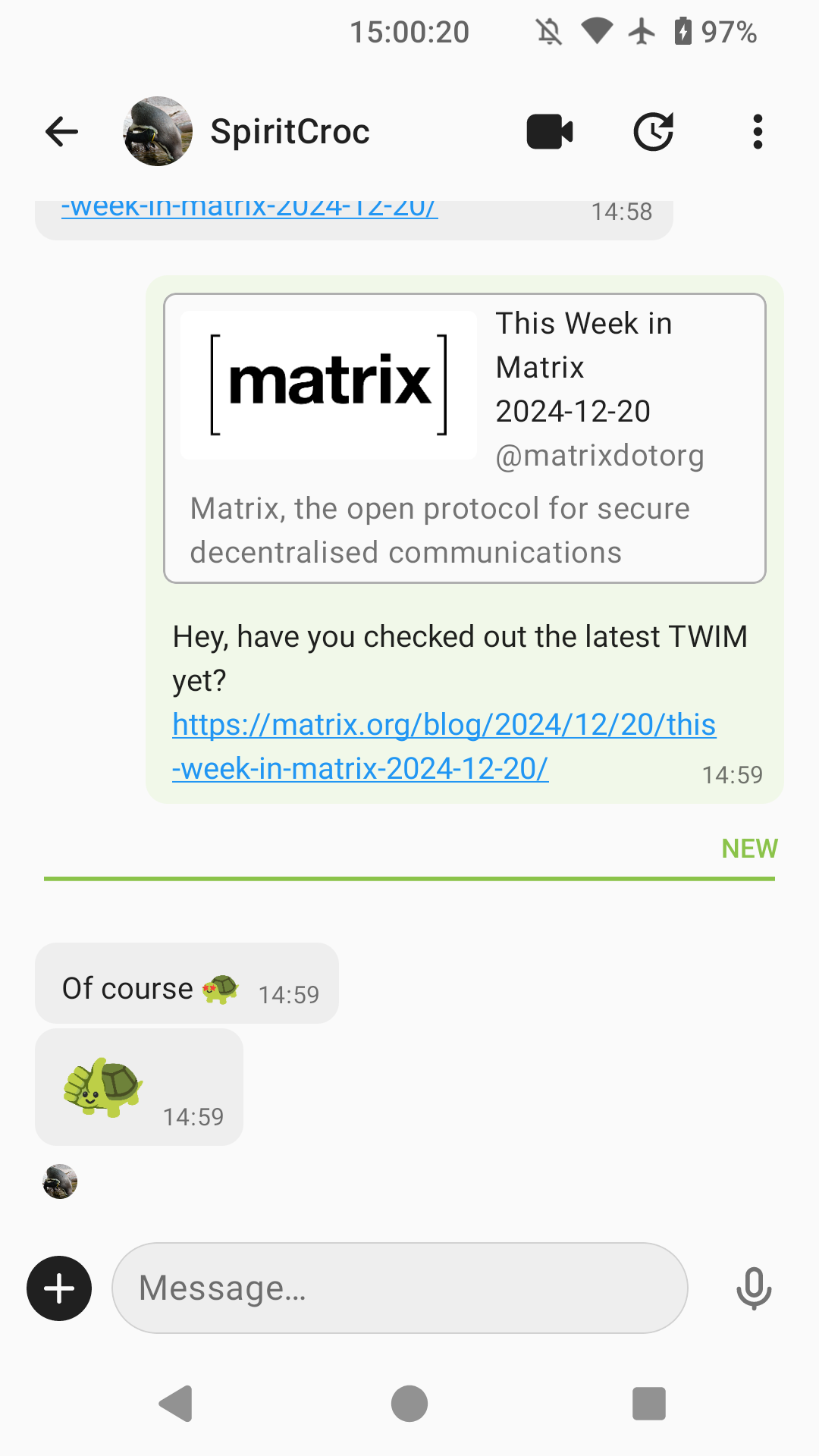This Week in Matrix 2025-03-21
2025-03-21 — This Week in Matrix — Thib🔗Matrix Live
🔗Dept of Status of Matrix 🌡️
🔗Trust and Safety Research and Documentation Working Group
Nico announces
As part of my work for the Trust and Safety Committee I am trying to establish a working group to help with researching and documenting the state of T&S across the ecosystem. If that sounds interesting to you, please poke your head into #governing-board-office:matrix.org and tell us!
To summarize what the group is about, the current proposal looks like this:
To make appropriate decisions, the T&S committee needs to know about the state of T&S in the wider ecosystem. It needs to have insights into current challenges, solutions and initiatives. On the other hand the community can also benefit from having some of that information documented. The T&S R&D WG is a tool to help with that. It includes a wider set of individuals and reports their research results to the T&S committee. In some cases the WG is also encouraged to enhance the documentation on matrix.org to help communities and users on Matrix moderate their rooms. The T&S committee might sometimes ask the WG for help in researching specific topics in more detail to guide their decisions.
🔗Pledge of Confidentiality
The WG will sometimes have to deal or come in contact with confidential data, possibly because of legal reasons, possibly because of active abuse concerns. While the WG is encouraged to be open, there will be times where the WG should keep certain information confidential and only share it with specific individuals. As the WG we pledge to keep information confidential when necessary while still being transparent and open where possible. The T&S committee may decide to remove members from the WG if it sees a member abusing their access to information or not acting in a trustworthy manner by sharing information the group agreed to keep confidential. This should be a last resort, needs a majority in the T&S committee and should be preceded by appropriate communication and warnings.
🔗Typical Tasks
- Gather information about current moderation challenges on Matrix and keep structured notes about them
- Maintain an overview of available moderation tools and their capabilities
- Create and maintain moderation guides on matrix.org in collaboration with the Website or Documentation WGs
- Reach out to moderators to gather feedback or offer advice
- Reports insights and opinions to the T&S committee and possibly other T&S working groups
- Potentially collaborate on proposals with the T&S committee or other WGs
- Turn some of their research into MSCs and collaboratively push them to completion as well as advise on other MSCs from a T&S perspective

